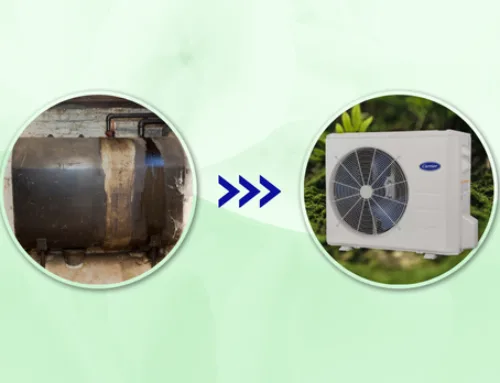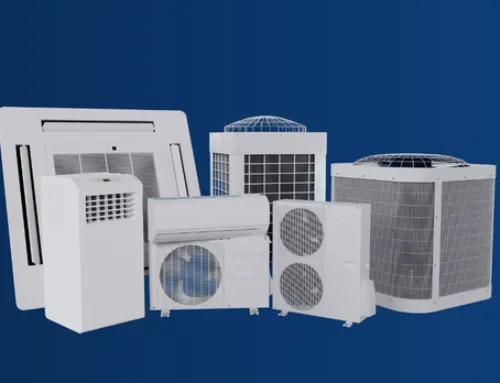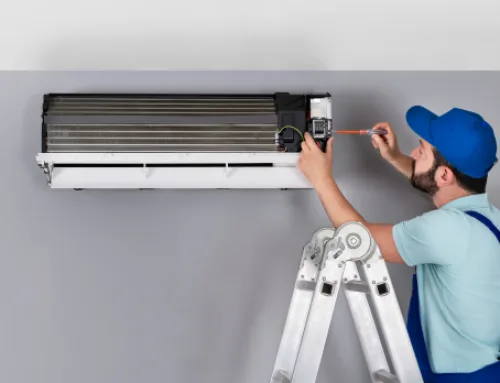It is crucial to keep the right humidity levels in your home for comfort and health. Too much humidity can cause musty odors, mold growth, increased allergies, and respiratory problems.
It can also damage your home’s structure, causing warped wood, peeling paint, and other costly repairs. High humidity can make the air feel sticky and warm, creating an uncomfortable living environment.
In this blog, we’ll provide practical tips to help you manage your home’s humidity levels, ensuring a comfortable and healthy living space.
7 Tips to Decrease Humidity in Your Home
These are some tips to help you effectively reduce humidity and maintain a comfortable, healthy living environment.
Use Dehumidifiers
Dehumidifiers are great for lowering humidity levels in your home. They remove extra moisture from the air, creating a cooler and more comfortable living environment. When selecting a dehumidifier, it’s important to consider the room size and the humidity level to choose the right capacity.
Position the dehumidifier in areas that tend to have high moisture, like basements or bathrooms, and make sure to regularly empty the water reservoir to maintain its efficiency. A dehumidifier can enhance your home’s air quality and overall comfort.
Improve Ventilation
Maintaining good ventilation is key to managing humidity in your home. Make sure to use exhaust fans in areas like bathrooms, kitchens, and laundry rooms to get rid of the moisture that builds up from daily activities like showering and cooking. It’s important that these fans vent outside and not into the attic to avoid mold problems.
When the weather is nice, opening windows and doors can also boost air circulation and lower indoor humidity. By keeping the air moving and moisture levels down, you’ll create a healthier and more comfortable living space.
Optimize Air Conditioning
Air conditioners cool your home and help lower humidity by taking moisture out of the air. To get the most out of this dehumidifying effect, set your AC to “auto” instead of “on” to stop it from running non-stop.
Regular maintenance, like cleaning the filters and coils, keeps your air conditioner working well. By maintaining your AC properly, you’ll enjoy a cooler, more comfortable home with reduced humidity levels.
Fix Leaks
Leaks in your home can raise humidity levels. It’s important to regularly check places like the roof, walls, and plumbing for any signs of leaks and fix them right away. Even minor leaks can add to humidity and cause bigger problems like mold and structural damage. By promptly addressing leaks, you can keep your home drier and healthier.
Use Absorbent Materials
Materials like silica gel and baking soda can help control humidity in small, enclosed areas. You can place them in closets, cabinets, or under sinks where moisture tends to build up. These materials are affordable and simple to use, offering an effective way to reduce dampness and prevent mold growth in your home.
Reduce Indoor Plants
Indoor plants can improve air quality and add beauty to your home, but they also increase moisture levels. To manage humidity, you might reduce the number of indoor plants or choose ones that need less water.
Moving some plants outside can also help lower indoor moisture, creating a more balanced and comfortable environment.
Dry Laundry Outside
Drying laundry indoors can increase humidity in your home. To prevent this, dry your clothes outside whenever you can, or use a dryer that vents outside. This small change helps control indoor moisture and creates a more comfortable and healthy living space.
Long-Term Solutions for Humidity Control
For lasting comfort and health, consider these long-term solutions to control humidity in your home.
Insulate Your Home
Proper insulation is key to controlling humidity and maintaining comfort in your home. By insulating areas like attics and basements, you prevent warm, moist air from entering and condensing inside your home.
Good insulation also helps with energy efficiency, keeping your home cooler in the summer and warmer in the winter. This not only helps manage humidity but also makes your home more comfortable and cost-effective to maintain.
Upgrade Windows and Doors
Adding double-glazed windows and weatherstripping your doors can help in managing humidity. Double-glazed windows reduce condensation with their extra layer of insulation, and weatherstripping stops drafts and moisture from coming in.
These improvements keep your indoor environment more stable and lessen the need for constant humidity control.
Install a Whole-House Ventilation System
A whole-house ventilation system, like a heat recovery ventilator (HRV) or an energy recovery ventilator (ERV), is great for managing indoor air quality and humidity. These systems bring in fresh outdoor air while removing stale indoor air, all without losing too much heat.
Installing one can boost air circulation, cut down on moisture buildup, and contribute to a healthier living environment.
Final Thoughts
Managing your home’s humidity is key to ensuring comfort, health, and the overall condition of your home. Regular maintenance and proactive steps can make your living space more comfortable and healthier.
If you’re dealing with high humidity or need expert guidance on improving indoor air quality, we’re here to assist. At Infiniti Home Comfort, our HVAC professionals can address your humidity issues and help you maintain a comfortable environment.
Reach out to us today for a consultation or to schedule an inspection. Let us help you create a healthier, more comfortable home!




